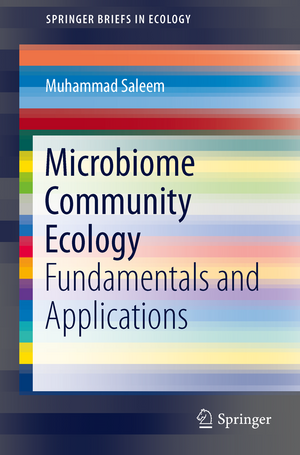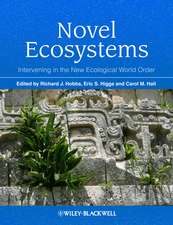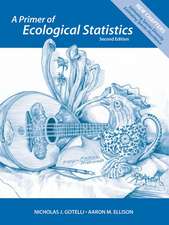Microbiome Community Ecology: Fundamentals and Applications: SpringerBriefs in Ecology
Autor Muhammad Saleemen Limba Engleză Paperback – 29 ian 2015
Preț: 413.66 lei
Nou
Puncte Express: 620
Preț estimativ în valută:
79.15€ • 82.64$ • 65.51£
79.15€ • 82.64$ • 65.51£
Carte tipărită la comandă
Livrare economică 04-18 aprilie
Preluare comenzi: 021 569.72.76
Specificații
ISBN-13: 9783319116648
ISBN-10: 3319116649
Pagini: 152
Ilustrații: VIII, 152 p. 40 illus., 30 illus. in color.
Dimensiuni: 155 x 235 x 12 mm
Greutate: 0.24 kg
Ediția:2015
Editura: Springer International Publishing
Colecția Springer
Seria SpringerBriefs in Ecology
Locul publicării:Cham, Switzerland
ISBN-10: 3319116649
Pagini: 152
Ilustrații: VIII, 152 p. 40 illus., 30 illus. in color.
Dimensiuni: 155 x 235 x 12 mm
Greutate: 0.24 kg
Ediția:2015
Editura: Springer International Publishing
Colecția Springer
Seria SpringerBriefs in Ecology
Locul publicării:Cham, Switzerland
Public țintă
ResearchCuprins
Chapter 1: Microbiome ecosystem ecology: unseen majority in an anthropogenic ecosystem.- Chapter 2: Theories, mechanisms and patterns of microbiome species coexistence in an era of climate change.- Chapter 3: Eco-evolutionary processes regulating microbiome community assembly in a changing global ecosystem.- Chapter 4: Loss of microbiome ecological niches and diversity by global change and trophic downgrading.- Chapter 5: Microbiome mediated multitrophic interactions in an age of microbial extinction.- Chapter 6: Global microbiome for agroecology, industry and human well-being: opportunities and challenges in climate change.
Notă biografică
Dr. Muhammad Saleem is a postdoctoral scholar at the University of Kentucky.
Caracteristici
Describes the mechanisms and patterns of prokaryotic diversity Addresses how climate change will impact prokaryotes, their habitats, and their diversity Takes a unique ecological and evolutionary perspective Includes supplementary material: sn.pub/extras



















